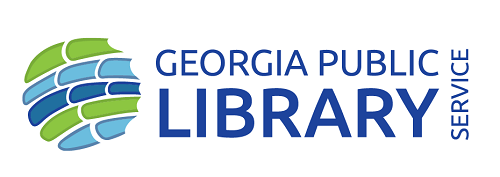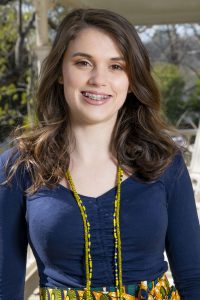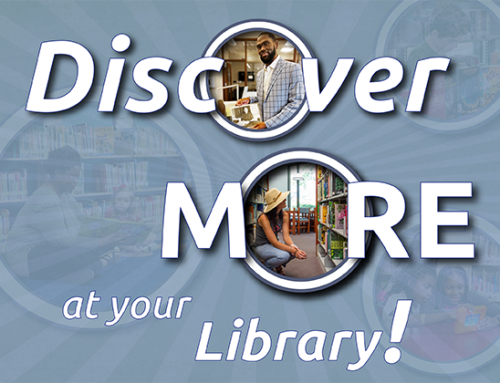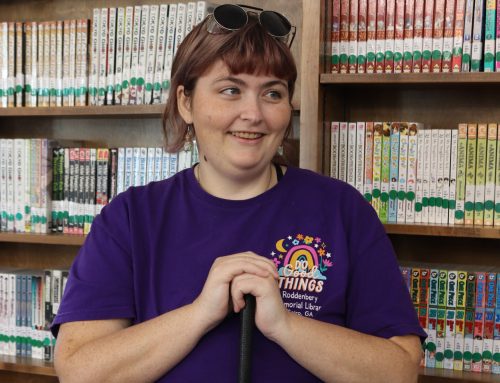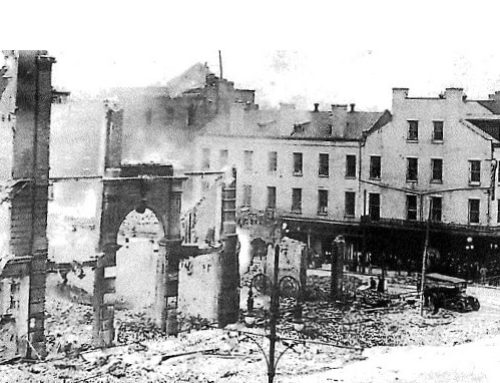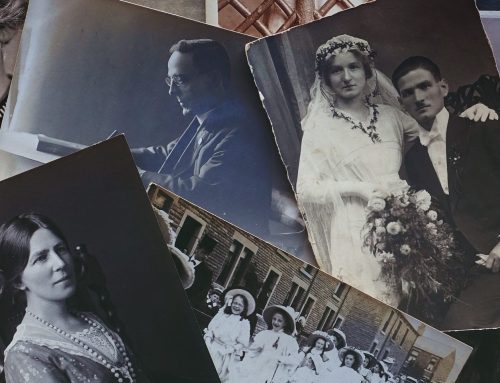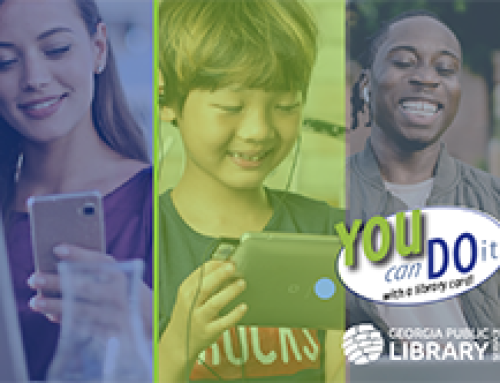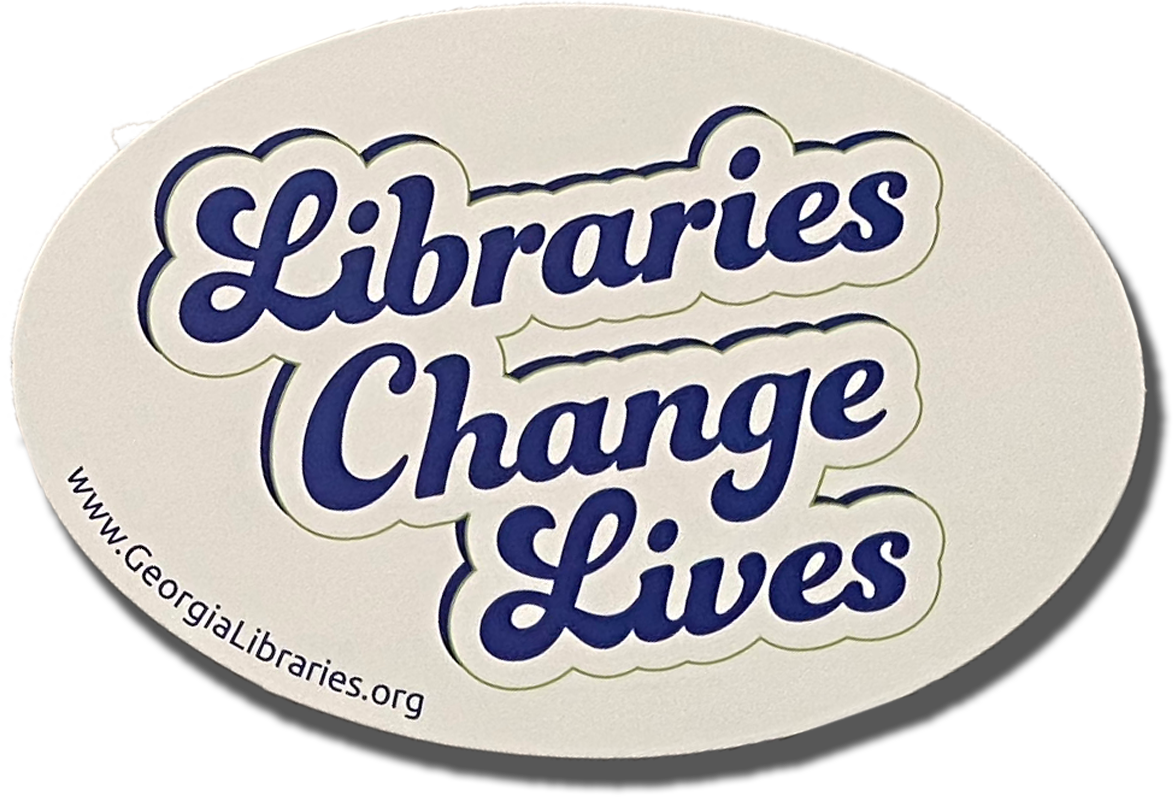A Georgia Public Library Service intern learns that an unexpected change of plans can lead to an enriching experience that benefits an entire community.
By Elizabeth Goggin
In February 2020, I was living as a foreign exchange student in São João del Rei, Brazil. After studying Brazilian Portuguese for three years at the University of Georgia (UGA), I was prepared to live in Brazil for 10 months, attending classes as a student, completing a professional internship, and working towards superior level Portugese fluency. However a month into my program, my cohort was evacuated due to the COVID-19 pandemic. While I was thankful to be safe at home with my family, the task of rebuilding my life and future in the United States was overwhelming.
About a month after returning to Georgia, I received an email from the UGA Department of History advertising an internship with the Archival Services & Digital Initiatives department of the Georgia Public Library Service (GPLS). After reading the job description, I was captivated by the opportunity. As a digitization intern, I would work with an oral history collection held by the Roddenbery Memorial Library and featuring interviews with members of the African American community in Cairo, Georgia, a small town on the Georgia-Florida border with a rich history of agriculture and religious fellowship. The goal of the project was to shed light on the historically underrepresented African American community in Cairo, and highlight their contributions to the city through posting their oral histories online.
Public libraries understand that greater access can lead to greater understanding, and many find special value in collecting and sharing primary source material, like these oral history interviews, to tell the unique stories of their communities.
Having previously worked with the Richard B Russell Special Collections Library Department of Oral History at UGA, and as a Black History Month Research Research Assistant for the Department of History, the internship was an ideal opportunity to replace the professional development I lost due to the pandemic. Following an interview with library staff, I was fortunate to receive an internship offer, and in July, I officially started the position.
During the summer months, I digitized the oral history interviews, converting them from tape cassettes into digital files for library patron access. While I initially started the project believing that only 50 interviews existed, after examining the tapes I discovered over 80 recordings. To account for the new interviews, my internship extended into the fall semester to allow time for photographic slide digitization, uploading the recordings to Soundcloud, and creating records with the Oral History Metadata Synchronizer (OHMS). This software is a platform to index oral history interviews into smaller segments, ideal for research or those wanting to listen to a single part of an interview without having to review the entire recording.
Oral history is an intimate method of preserving community history, as it records the human voice, memory, and identity. While listening, I learned about rural midwifery, turpentine, railroads, and tobacco farming. I listened to sharecroppers recollect their tribulations and grandmothers share their family histories. I learned about educators, church members, and community figures. The interviews cover a wide range of subjects and time periods, with each recording adding to the collective knowledge of African American history in Cairo. In addition to the interviews, the collection also includes photographic slides, documenting local churches and cemeteries.
This project symbolizes a cornerstone of archival research: accessibility. Through maintaining this collection online, researchers, historians, and everyday people wanting to learn more about the history of the African American community in Cairo, Georgia, can access this collection cost free, from anywhere in the world.
While the pandemic completely changed my academic and professional plans, the GPLS internship provided a sense of stability and normality during a turbulent period of my life. The experience taught me so much about archival studies, Black history, and community outreach. Although the pandemic safety precautions prevented me from working in an office environment, I was able to attend virtual webinars and courses on oral history. This internship created a sense of normality through the months of quarantine and isolation. Despite the difficulties of the pandemic, this internship was an incredible opportunity to develop my archival and historical research skills.
Read the press release: “We Endure” Oral History Collection Documents Stories, Struggles of Cairo, Georgia’s African American Community
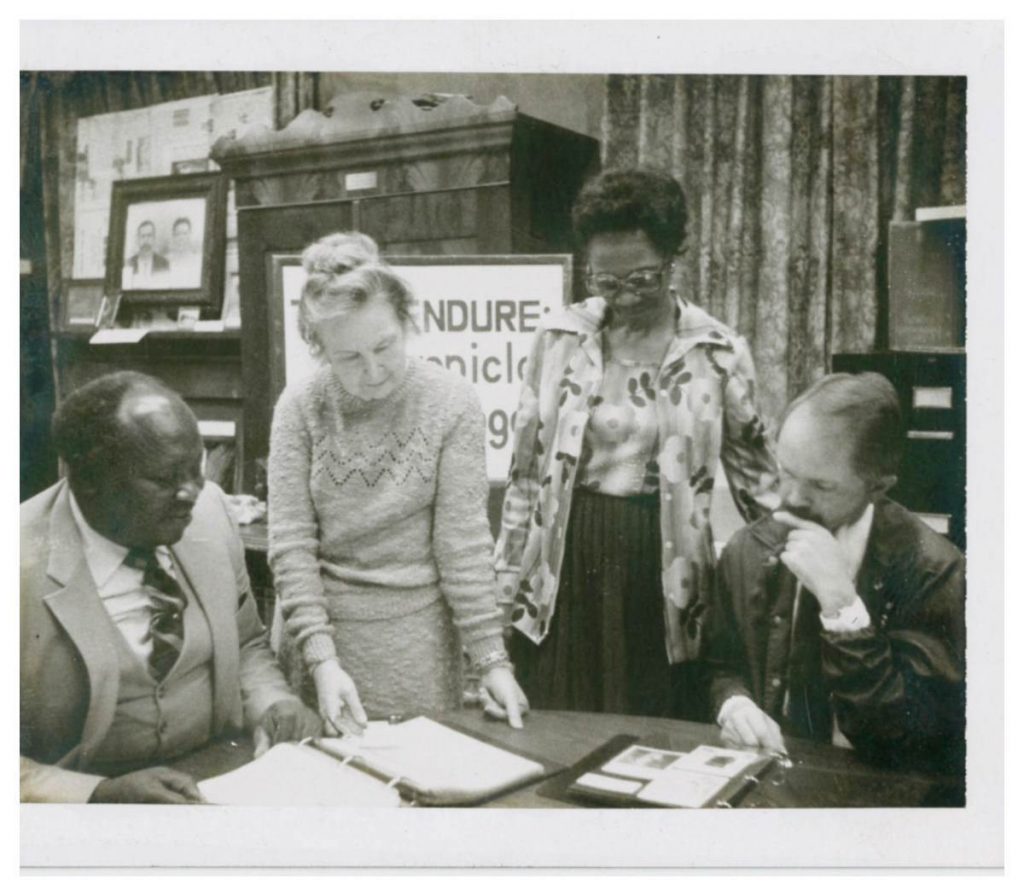
Left to right: Project Consultant James Eaton, Library Director Wessie Connell, library staff member Katherine Weston, and a library staff member. Photo courtesy of the Roddenbery Memorial Library.
